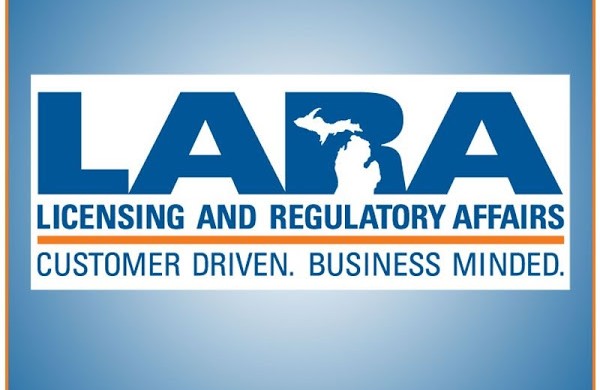
Nov 19, 2018 | Blog, News
Michigan Medical Marihuana Act (MMMA)
This legislation was passed in 2008 allowing for individuals and their assigned card carrying caregivers to grow and possess marijuana in limited quantities, as long as they had a prescription from a doctor.
The legislation left a lot of items open for interpretation, creating many gray areas and legal misinterpretations that were twisted to the advantage of one party over another. Gray areas like this got many people in legal trouble, even when they were trying to operate within the rules.
To date, dispensaries have typically been operating outside of this law. Some municipalities have shut down dispensaries while others have allowed them to operate. The MMMA says it allows for caregivers to receive compensation for their expenses in growing and creating medicine.
Visit the MMMA Forum to learn more and open discussions
Arrested for or Charged with DUI or driving under the influence of “drugs”?…Don’t Plea Out – Contact Komorn Law 800-656-3557.
Michigan Marihuana Facilities Licensing Act (MMFLA)
The MMFLA was passed in 2016 in an attempt to provide the state with legal framework for marijuana businesses to operate.
By applying for a permit with the local municipality, and then applying for and getting approved for a license with the state, approved businesses will be allowed to operate under rules that the state has been evolving.
There are currently 5 basic license types that will be issued, Class A, B, or C Cultivation, Processing (Extraction, cooking, packaging, etc), Provisioning (Dispensary), Safety Compliance (Testing labs), and Secure Transportation.
These businesses will operate under restrictive state regulations. There will be several requirements like reporting every purchase and sale to the state, undergoing extensive background searches, and following specific packaging standards. There is also a substantial application process involved in this model, along with annual fees and many other requirements.
Visit the Michigan State Licensing site for more information
Komorn Law has represented numerous clients through the legal chaos of starting up a business in the Michigan Medical Marihuana Industry as well as consulting and legal representation for Medical Maruhuana Patients and Caregivers.
If you or someone you know has been arrested as a result of Medical Marijuana, DUI, Drugs, Forfeiture, Criminal Enterprise or any other criminal charges please contact our office and ensure you’re defended by an experienced lawyer.
Attorney Michael Komorn is recognized as an expert on the Michigan Medical Marihuana Act. He is the President of the Michigan Medical Marijuana Association (MMMA), a nonprofit patient advocacy group which advocates for the rights of medical marijuana patients and their caregivers.
Contact us for a free no-obligation case evaluation 800-656-3557.
Follow Komorn Law
This page is for informational purposes only. Laws, regulations and the world change routinely, therefore we insist you consult an attorney for the most current legal information.

Jul 22, 2015 | Blog, Medical Marijuana Attorney Michael Komorn, Michigan Medical Marijuana Act, Michigan Medical Marijuana Association, News
Activists are screaming mad at the conduct of officials representing Governor Rick Snyder’s administration during a hearing today to determine if autism should be added to the list of illness that qualify a patient to use medical marijuana in Michigan. The petition, submitted in 2014, contains a summary of 75 peer-reviewed articles on autism and 800 pages of reference material. ”When the panel sat down today, what they had was pieces of the document,” said Southfield attorney Michael Komorn. Pieces apparently selected by the Attorney General’s office, according to statements made on the record by Board officials. What was missing? “The Summary, with the 75 peer-reviewed studies, and the 800 pages of clinical research on autism and cannabis,” Komorn said. Advocates sued the government in Ingham County Circuit Court to force the Department of Licensing and Regulatory Affairs (LARA) to consider a petition for that purpose submitted in 2014 by Lisa Smith, whose son Noah has autism and other illnesses. Petitions are debated by the Medial Marihuana Review Panel (the Board) under rules established in 2008 by the Michigan Medical Marihuana Act (MMMA). A previous petition to add autism to the MMMA was rejected at a Board hearing back in 2013. “We litigated for a year,” to get the Smith petition accepted, Komorn said. The State was represented by the Office of the Attorney General, Bill Schuette. The language of the MMMA requires that each petition properly submitted must be considered by the Board. Schuette’s and LARA’s response was the opposite: we already ruled on that illness and no subsequent petition will be considered. “The Court decided theirs was a wrong interpretation. We won; they had to give us a new hearing on the petition submitted.” A hearing on the Smith petition was held in May of this year. On July 1 a whole new Board was created, per rule changes made in January 2015 by LARA over the objections of citizens and Senators. Some of the members of the new panel had not heard the testimony on the Smith petition taken by the Board weeks earlier. “When the Board assembled today we were expecting a vote yea or nay on the petition,” Komorn related. “Before we were able to begin the conversation it was brought to the attention of the Board as a whole by (Board member) David Brogren that this very comprehensive document with supporting papers was not given in its entirety to the Board, and that the Board should consider the entire package before voting.” The science was scrubbed from the document given to the Board for consideration, Komorn said. “When the Circuit Court made an order that the petition be considered, they meant the whole petition,” Komorn growled. ”(The Court) didn’t change the material submitted, it required the Board to consider the petition filed with the Court.” Of a greater concern is the reason cited for the edited version of the petition being presented. Along with a new Board comes a new leader, and the newly-appointed Board made selecting a new Chair their first priority. When the confusion regarding the petitions was exposed, her reaction was not one that inspired confidence among the hearing’s attendees. “The statement she made on the record was very distressing, that this information was given to the board by the Attorney General, not the Court,” Komorn said. “The Attorney General’s role was referenced by (the Chair), who said, in response to Brogren, this is what was sent to us by the Court via the Attorney General.” “The representative kept referring to the fact that this document is what the Attorney General’s office gave us,” said Jamie Lowell of Ypsilanti’s 3rd Coast Medical Marijuana Dispensary, who attended the hearing. Brogren mentioned on the record that he had given the Board the petition in its entirety two weeks ago. Even after the issue was exposed, Komorn said the Chair seemed more concerned with spin control than she was with establishing proper process. Komorn explained that “she kept insisting that the Board had all the information they needed to make a decision on autism and medical marijuana,” he said, “without seeing any of the science behind it.” Brogren’s objections to considering the issue without all the facts swayed the result and stayed the Board from voting. They will reconvene at a later date to make a final determination on the Smith petition, after receiving the entire document. In addition to being a criminal defense attorney, Komorn is the host of an Internet-base radio program broadcasting weekly for more than four years. The Planet Green Trees Radio Show (PGT) has followed the progress of the autism petition from the start, prior to 2012’s initial rejection. Shows #255 and #257 covered the topic with interviews and behind-the-scenes looks at the tribulations experienced by those advocates who sought a positive result at the July 20 hearing. One of those interviewed by the PGT staff: Dr. Harry Chugani, chief of pediatric neurology at Children’s Hospital of Michigan in Detroit “There was a major flaw in the process of how information was being given to the Board members,” Komorn stated. He challenged the notion that the Attorney General, a noted medical marijuana detractor and a major opponent of the MMMA in 2008, should be filtering information approved by the Court for use by a state agency. “Mind you, the AG had to be sued to bring this information to the Board in the first place,” Komorn emphasized. “Why is it OK for the Director of this Board to rely on them for the information used to make the determination of autism’s validity for inclusion on the medical marijuana program?” As a barometer of governmental efficiency, Komorn gave the Board’s actions today two thumbs down. “This Board is not operating in a way that anyone in the public would appreciate… this behavior should do nothing but bring concern from citizens… I don’t think that anyone that walked out of that room has one bit of confidence in the integrity of the process.” “I’d like to believe in the possibility of a fair hearing, but after experiencing the Attorney General in action over the years I can’t help but believe today’s behavior, creating unnecessary confusion and restriction, is intentionally designed to lead to a negative outcome,” Lowell observed. “I really hope I am wrong.”
Source: The Compassion Chronicles by Rick Thompson at 6:15 AM on July 21, 2015

Apr 27, 2015 | Blog, Medical Marijuana, News, Planet Green Trees Radio
April 23-2015 – After 5 years and hundreds of episodes of Planet Green Trees Talk Radio… the ” All about Medical Marijuana Radio Show” broadcasted live on the road. The live event took place at 7pm on Thursday, April 23, at O’Mara’s Restaurant located at 2555 12 Mile Rd., Berkley, Michigan.

O’Mara’s is a local family restaurant with absolutely delicious food and drinks.
Although the show usually delves into the minutia of the Michigan Medical Marijuana Association, legal issues and other cannabis reform topics. The plan for that night focused on the Michigan Medical Marihuana Act 101. A bare bones basic discussion to educate the interested about the Michigan Medical Marihuana Act and how to participate in the program with peace of mind.
Hosted by Michael Komorn, a leading medical marijuana attorney in Southfield and the president of the Michigan Medical Marijuana Association along with Chad Carr, Jamie Lowell, co-founder of Ypsilanti’s 3rd Coast Compassion Center, Rick Thompson, from the Compassion Chronicles, Attorney David Rudoi and Steve Milller. Conversation, education and live music happened throughout the evening.
Those who attended gained insight regarding the confusing Michigan Medical Marijuana laws and left with lot more knowledge than they came with.
Listen to the PGT Talk Show Episode 245 here




